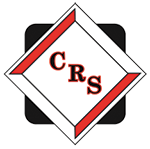The world of healthcare relies on a complex ecosystem of professionals, technologies, and processes. While doctors, nurses, and surgeons often take center stage, another critical player is working behind the scenes: medical record abstraction. This might sound technical, but its impact on patient care is anything but.

What is Medical Record Abstraction?
Imagine a patient’s medical history as a vast library – filled with doctor’s notes, test results, discharge summaries, and other documents. A medical record abstractor acts like a skilled librarian, meticulously combing through these records to find specific pieces of information. This information might include:
- Diagnoses
- Medications
- Procedures
- Allergies
- Laboratory results
- Imaging reports
Once these details are extracted, they’re coded using a standardized system, making them easily understood and compared across different healthcare settings. Think of it as transforming a messy library into a well-organized database.
Why is Medical Record Abstraction So Important?
Medical record abstraction provides the foundation for several critical initiatives in healthcare, all leading to better patient care. Here’s a deeper dive into some key reasons why:
- Better Care: By extracting precise and thorough data via medical record abstraction, healthcare professionals are better equipped to decide on patient treatment plans. By analyzing past diagnoses, medications, and treatment responses, doctors can personalize care and optimize outcomes.
- Example: A patient with a history of heart failure who presents with new symptoms might undergo a more thorough cardiac evaluation based on information gleaned from their medical record abstraction.
- Fueling Research and Innovation: Abstracted medical data fuels research initiatives across various cardiovascular conditions. Researchers can analyze large datasets to:
- Identify trends in disease prevalence and risk factors.
- Compare the effectiveness of different treatment approaches.
- Develop new diagnostic tools and therapies.
- This ultimately leads to advancements in the diagnosis and treatment of heart disease.
- Example: Researchers studying the long-term effects of a new cholesterol-lowering medication might leverage data from a national registry populated through medical record abstraction.
- Effective Quality Improvement Initiatives: Hospitals and healthcare systems rely on medical record abstraction to assess the quality of care they provide. By analyzing abstracted data, they can identify areas where processes can be improved, leading to:
- Reduced readmission rates
- Improved patient satisfaction
- More efficient use of resources
- Standardized Data Collection: Medical record abstraction ensures consistent data collection across different healthcare settings. This standardization allows for:
- Reliable comparisons between institutions
- The creation of national benchmarks for quality care
- This facilitates the sharing of best practices and continuous improvement across the healthcare system.
- Example: By using standardized data collection methods for specific heart surgery, hospitals can compare their complication rates and mortality rates with national benchmarks.
- Public Health Reporting: Abstracted data contributes to public health reporting on cardiovascular diseases. This information is valuable for policymakers and public health agencies in:
- Allocating resources to areas of greatest need
- Developing preventive strategies to reduce the disease burden
- Example: Public health officials might use data on regional variations in heart attack rates to target specific communities with educational campaigns or screening programs.
Medical Record Abstraction: Why Accuracy Matters
The accuracy of medical record abstraction is paramount. Precise data extraction ensures the various benefits outlined above are fully realized. Here’s how accurate abstraction contributes to a better healthcare system:
- Reduced Errors in Patient Care: Inaccurate data can lead to misdiagnosis and inappropriate treatment plans. Accurate medical record abstraction minimizes such risks, promoting patient safety.
- Example: A patient’s medical record might incorrectly list them as allergic to penicillin, leading to a potentially life-threatening reaction if they’re prescribed the medication for an infection. Accurate abstraction ensures such errors are minimized.
- More Efficient Use of Resources: Reliable data helps healthcare systems allocate resources such as medications and procedures more efficiently, ensuring they reach patients who need them most.
- For instance, Hospitals can allocate resources for more attentive monitoring and post-operative care by identifying patients who are more likely to experience complications after a particular surgery. This could prevent complications and lower the need for additional interventions.
- Enhanced Cost-Effectiveness: By identifying areas for improvement and promoting better treatment practices, accurate medical record abstraction contributes to a more cost-effective healthcare system.
- Example: Analyzing data on medication adherence might reveal that a significant portion of patients are not taking their medications as prescribed. With the use of this data, focused interventions to enhance medication adherence can be created.
How Can Medical Record Abstraction be Improved?
Several factors contribute to high-quality medical record abstraction:
- Experienced and Trained Abstractors: A skilled and knowledgeable team of abstractors familiar with medical terminology, coding systems, and the nuances of different electronic health record (EHR) systems is crucial. Ongoing training and education are essential to keep abstractors updated on medical guidelines and industry best practices.
- Standardized Abstraction Tools: Using standardized forms and software ensures consistency and minimizes errors in data extraction. These tools should be user-friendly and designed to capture the necessary data elements efficiently.
- Quality Control Measures: Regular audits and data verification procedures are essential to maintain accuracy and reliability. This includes random chart reviews, inter-rater reliability checks, and feedback mechanisms for abstractors to improve their performance.
- Advanced Technologies: Leveraging artificial intelligence (AI) and natural language processing (NLP) can streamline the abstraction process by automating certain tasks, such as identifying and extracting specific data points from unstructured text.
- Collaboration with Clinicians: Effective communication and collaboration between abstractors and clinicians are essential for accurate and complete data extraction. Clinicians can provide valuable insights into the meaning of medical terms and the context of patient information.
The Future of Medical Record Abstraction
Medical record abstraction will play a more evolving role as healthcare does. Here are some potential trends and developments:
- Increased Automation: Advances in AI and NLP will likely lead to greater automation of the abstraction process, freeing up human resources for more complex tasks.
- Integration with Electronic Health Records (EHRs): Integration of abstraction tools with EHRs will improve efficiency and reduce the potential for errors.
- Data Privacy and Security: With the increasing volume of sensitive patient data, ensuring data privacy and security will be paramount.
- Real-Time Abstraction: The ability to abstract data in real time will become increasingly crucial for supporting clinical decision-making and patient care.
Conclusion
Medical record abstraction, often overlooked, is a critical component of the healthcare ecosystem. By investing in skilled abstractors, advanced technology, and robust quality control measures, healthcare organizations can harness the full potential of medical record abstraction to drive improvements in patient care, research, and overall healthcare delivery.


